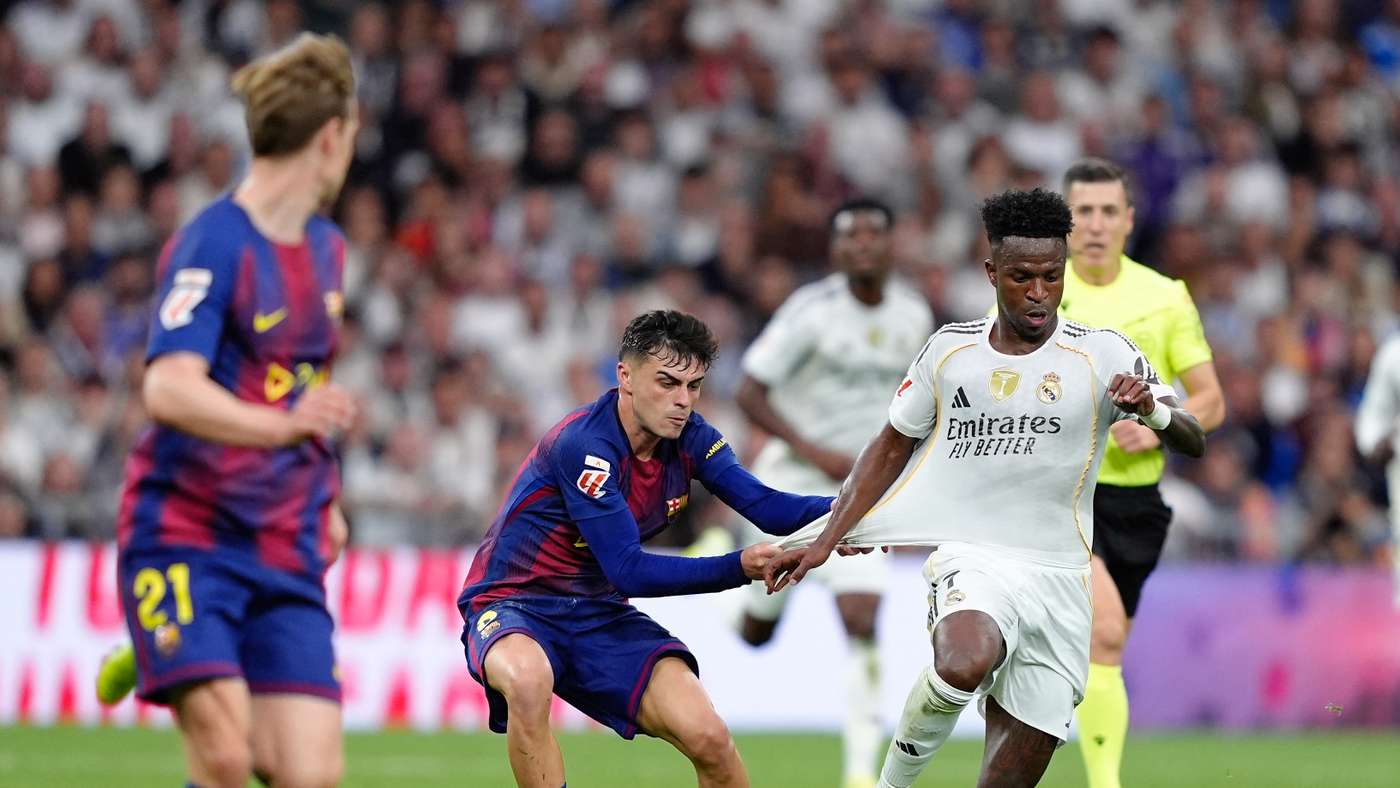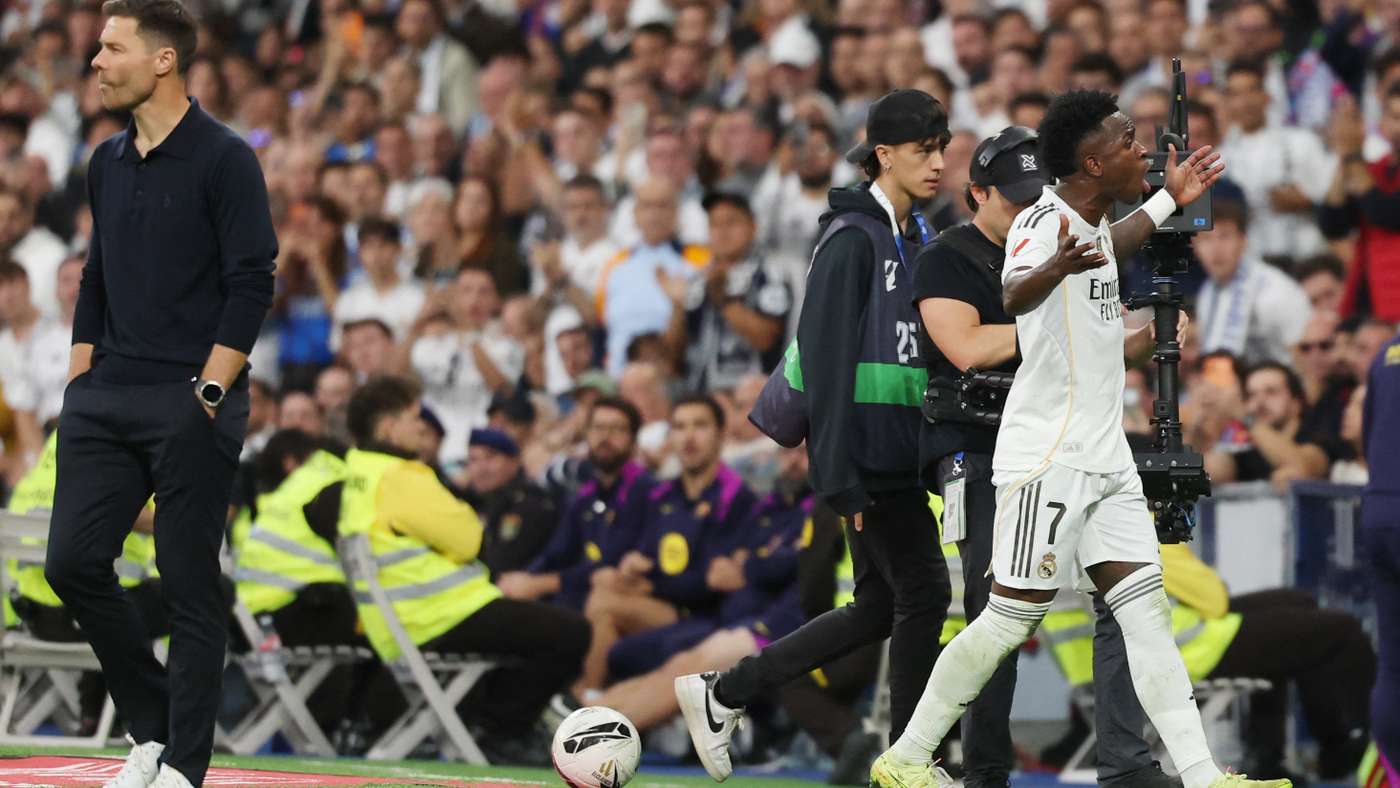From the moment Real Madrid announced the hiring of Xabi Alonso as the team’s head coach, the club projected a project built on reorganizing ideas, discipline, and collective purpose. The new coach arrived with a clear blueprint for shape, discipline, and on-field rhythm—one that would not tolerate any player, no matter their status, hijacking the plan.
At the same time, Vinícius Júnior began the season feeling like a pillar of the project, especially after Karim Benzema’s departure, with the Brazilian star becoming a principal figure in the attacking trio. The message was simple: there is room for everyone, but roles must be earned and aligned with the team’s objectives.
So the relationship began on a cordial note, yet carried seeds of a philosophical clash that did not take long to emerge. In early weeks, Vinícius sought to project positivity and cooperation. In a brief club interview, he said: "I’m happy with the new coach. We’ve talked, we know what we want to achieve. We’re here to win titles."
That statement reflected a readiness to collaborate and integrate into the project, but it also carried an unspoken undertone: Vinícius sees himself as an indispensable asset, a star around whom details are built, not a player whose role should be redefined on a whim.
Alonso, for his part, spoke with measured caution about the player. He praised Vinícius but framed his public messaging with a team-oriented tone, underscoring that decisions serve the group’s interests. He said, at a press conference: "Vinícius is an important player, and we need him, but decisions are made for the good of the team. Sometimes you start, sometimes you come off the bench. That’s natural at a big club."
This line captured the divergence in thinking: a player seeking a stable, central role at the apex, and a coach aiming for a unit moving as one, with minutes and responsibilities distributed across the squad.
As the season kicked off, Alonso’s philosophy gradually surfaced. Vinícius didn’t always complete 90 minutes; he was substituted in consecutive games even when his attacking input remained high. The media quickly framed the scene as a potential clash: Is Alonso imposing technical and disciplinary constraints on the player, or is he simply trying to disengage a single star from becoming the team’s sole anchor?
During this period, Alonso attempted to explain his choices calmly: "I’ve been a player, and I understand the anger of being substituted. It’s only human. But we must respect the group and work according to what the team needs at every moment." The message was clear: the coach will not bend his principles for an emotional moment. Vinícius stayed mostly quiet, though there were flashes of frustration on the pitch when he felt he could still influence the match from the field.
That season, Vinícius Júnior played 13 matches across La Liga and the Champions League, for a total of 880 minutes. In La Liga, he started eight times and came on as a substitute in two more, with only three matches seeing him complete 90 minutes, notably against Levante, Atletico Madrid, and Villarreal. In the Champions League, he appeared as a starter in two of three matches and came on as a substitute in another, never completing 90 minutes in the competition.
Volcano of Anger
A fresh flare-up erupted in the Clasico when Vinícius publicly expressed his discontent after being subbed off in the 70th minute. He let the emotions show through gestures and words as he left the pitch for the dressing room, skipping the players’ bench for a direct exit. When he saw his number on the board, his shock and protest were visible, and his departure carried a tone of defiance.
Alonso chose to ignore the moment in the immediate aftermath, keeping focus on the field, while several Madrid teammates stepped in to cool the situation. Vinícius initially did not sit on the bench, walking straight to the locker room, returning a few minutes later with a stern, tense expression. In the moment of withdrawal, Vinícius muttered a profanity aimed at Alonso, underscoring the intensity of the emotion but also signaling that the gravel between coach and player was not yet smoothed over. It wasn’t the first time Vinícius had shown discontent with the coach’s decisions.
Broadcast footage from DAZN captured a moment in which Vinícius shouted: "Always me! I’ll leave the team, I’d be better off leaving," while Alonso stood firm in the technical area. The coach’s response was concise and even, a reminder of professional boundaries amid heated emotions.
Alonso’s Calm
In the wake of the clash, Alonso spoke with added confidence after Real Madrid’s first Clasico victory under his watch, a 2-1 win that he framed as a mental and future-forward triumph. He expressed happiness for the players who proved their capacity to win in a high-stakes match, insisting that the victory was earned and meaningful for the club’s ongoing journey.
Asked about any sense of liberation from pressure, he replied that nothing is ever fully liberated: "There’s still a long way to go; we must stay calm." The press conference also addressed Vinícius’ outburst: Alonso noted the positives of the game and pledged to discuss the incident with the squad, emphasizing that individual moods must be managed within the group’s dynamics. It’s normal for stars to have strong personalities, he argued, but that does not justify derailing the team’s focus.
As the questioning continued, Alonso reiterated his central message: differences of personality are part of football culture, but the aim remains a healthy competitive environment. The club’s emphasis on unity and shared objectives remained their guiding principle, even as tensions flared during a Clasico—proof that the top stage can magnify emotions as much as it magnifies ambition.
Mbappé’s emergence had already begun to reshape how Madrid attacks, with the French forward becoming the primary decision-maker in the final third in many moments. This shift drew attention away from Vinícius, who historically led Madrid’s charge on the left and in one-on-one duels. Mbappé’s movement between central areas, the depth, and the space he created altered the team’s attack architecture, offering a different route to goal and sometimes overshadowing Vinícius’ once-dominant presence. The adjustment raised questions about leadership, balance, and whether the season’s tactical revolution would be a short blip or a lasting transformation in Madrid’s offensive identity.
Mbappé Pulls the Rug
This season, Mbappé has established himself as the “first star” in the latter third of the pitch, capable of delivering decisiveness and finishing when it matters. In 13 matches across La Liga and the Champions League, he has tallied 16 goals and two assists, a statistic that has immediately altered how opponents defend Real Madrid. The defensive focus has shifted toward him, at times reducing the attention given to Vinícius, who historically thrived on individual duels and breakthroughs. Mbappé’s movement, from central zones to the half-spaces, has increased the team’s attacking options and provided Madrid with alternatives that did not exist before his arrival. This evolution has sparked questions about whether Vinícius’ role has diminished, not due to a decline in his quality, but because of the new offensive equation—one where Mbappé now has more space to influence pivotal plays and decisions within the key zones, while Vinícius transitions from peak creator to a more complementary figure in the attack.
And the big question remains: is Madrid’ Clasico crisis merely a passing cloud, or the start of a longer arc in Vinícius’ Madrid story, with Mbappé carving out an enduring space in the team’s most crucial matches?
Ultimately, Alonso’s approach aims to keep momentum, manage the emotional climate, and sustain collective performance. The season’s early episodes suggest a team still finding its rhythm, a top striker trio reshaping the scoring map, and a coach who will enforce a group-focused culture even when fireworks erupt on the touchline.
Punchline time: If Alonso’s plan is a work of art, Vinícius is the brush that keeps waving—just try not to splash paint on the bench. Sniper joke 1: The only thing sharper than Alonso’s tactics is his ability to spot a misfit in the squad from 60 meters away. Sniper joke 2: Madrid’s transfer window may have closed, but the rumor mill is open 24/7—still, Alonso’s playbook won’t run on Wi‑Fi, it runs on discipline and timing.




